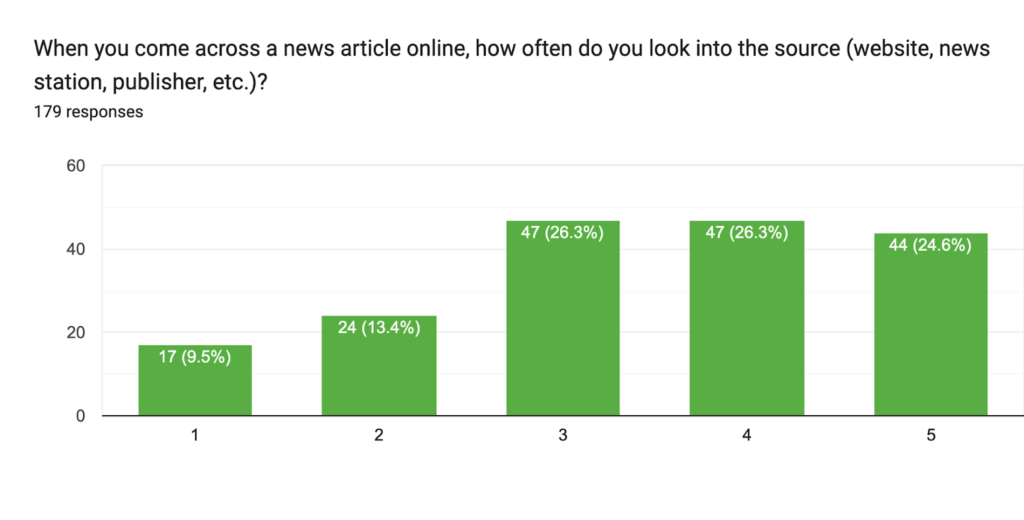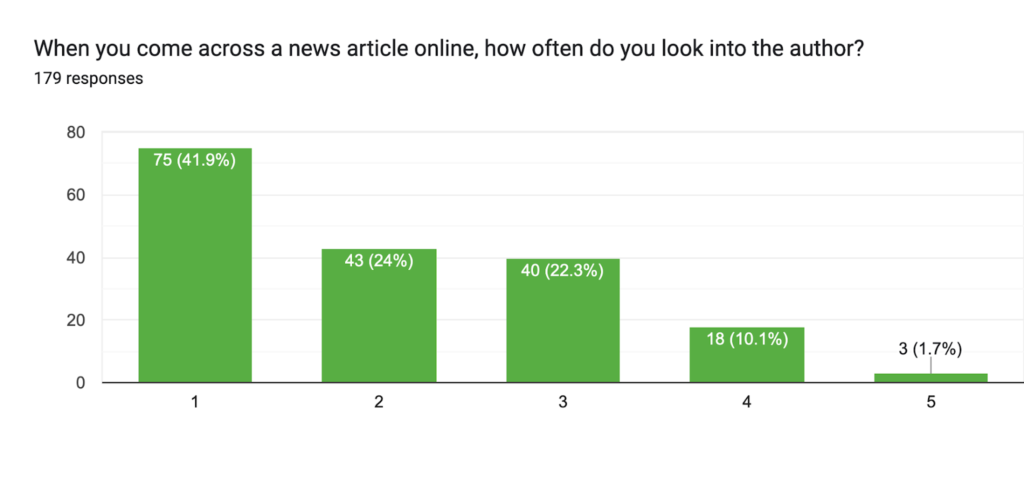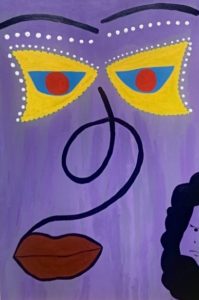Beware the Bots: Misinformation is Hurting Young Black and Hispanic Communities
9 minute readThe creation of distorted or fake news materials and images is not something new or out of the ordinary. Since the early 1800s, the spread of false narratives and harmful stereotypes has planted seeds of distrust among many Americans, especially along racial, ethnic, and religious lines.
These tactics have included sensationalized stories to sell newspapers, which was coined “yellow journalism” in the 1890s, racist and misleading narratives about different marginalized groups in the mid-1900s during the Civil Rights Movement, and pro-military propaganda used during wartime.
The result of this misinformation has created an effect of destroying trust in the media and inciting harm against marginalized groups. The spread of both unsubstantiated and intentionally racist disinformation has spurred fear, division, and the questioning of objective reality since the inception of the U.S. to now.
Since the rise of social media, news sources of choice have shifted from primarily newspapers, radio, and TV to mostly online and/or through various apps on smartphones. The massive wave of information coming in from different sources all over the world has made it much more difficult to identify what is true or false. Along with the rise of AI and the profitability factor for getting clicks (and the number of folks willing to do so in any way necessary), the internet is a minefield of misinformation.
Today, the Black and Hispanic communities are continuously being targeted specifically with dangerous misinformation. Social media advertising, spam, clickbait combined with intentional efforts from bots to share disinformation on health issues or discourage participation in elections can even mean the difference between life and death. This type of life-threatening misinformation can include stereotypes and biases about demographics such as believing Black people have a higher pain tolerance. This tale has prevented many Black people, especially Black pregnant women, from receiving fair and proper treatment, according to this UCLA healthcare article.
For the past 10 years, social media has fueled the engine of fake news, primarily for young people ages 18-34. In order to understand how Long Beach residents, students, and workers perceive news, we created an online English and Spanish survey to identify their habits.
According to our survey of 179 responses, many respondents said that they get their news from social media platforms: Twitter, Instagram, Tiktok, and Facebook being the major ones. Ironically, these platforms were also the ones where the survey respondents found the most misinformation. Yet, about 90% of them stated that they do not always look into the sources or author(s) of the provided “news” before believing or sharing it.

Source: An online google doc survey from the Know Your News LB campaign from Jan 24, 2023, to Feb 6 2023.
In the past couple of years, there were efforts made on social media and elsewhere online to primarily target and mislead the Black and Hispanic communities when it came to elections, coronavirus, and other controversial issues.
Now is the time for the Long Beach community, especially the Black and Hispanic youth who are targeted, to take action by becoming news literate – meaning, honing the ability to recognize credible, fact-based journalism in order to know what to trust, share, and act on.
The truth is continuously disoriented by fake news, conspiracies, and hoaxes on these platforms. The sources are usually online users who intentionally create or spread disinformation because it is profitable and bots who are created to do the same. This includes the spread of misinformation about Covid-19 and elections.

Source: An online google doc survey from the Know Your News LB campaign.
There was even an operation spreading made-up political stories in our own backyard. Liberty Writers News, a fake news website mainly consisting of aggressive, misleading headlines designed to attract web traffic and generate revenue, was founded by Paris Wade and Ben Goldman in Long Beach in 2015. For them, it was simply humorous, eye-catching clickbait that riled up their readers and made them lots of money. For the online community they targeted, it fed into right-wing beliefs about the opposing political party ultimately leading to confirmation bias on why it was justifiable to think and behave the way they do. Apart from political propaganda, misinformation about Covid-19 created a wedge when it came to the safety and health of our community.
Tomisin Oluwole
Face the Music, 2022
Acrylic on canvas
24 x 36 inches
Click here to check out our interview with Tomisin Oluwole, a literary and visual artist based in Long Beach.

Instead of gunking up our site with ads, we use this space to display and promote the work of local artists.
On Jan. 13, 2021, the city of Long Beach posted a press release on its website, warning residents to beware of suspicious claims about Covid-19 vaccinations occurring throughout the region. “During the coronavirus pandemic, scammers are using robocalls, social media posts, and emails to take advantage of fear, anxiety, and confusion about the virus,” the release said.
Russian operations created thousands of false advertisements, fake news sources, and bots pretending to be African American groups and users on Facebook during the 2016 election according to The New York Times and Washington Post. The fake information centered around voting was intended to intimidate Black voters from participating or changing their political behaviors.
The same intention occurred during the height of Covid-19. In an NPR morning edition interview Jahmil Lacey said, “When the pandemic first started, there were a lot of rumblings around, like this being a hoax. I’ve heard stories about people believing that, you know, Black people were immune to coronavirus.”
Certain online users’ sole intention was to discourage Black people from getting the vaccine by spreading dangerous disinformation.
As for the Hispanic community, there is a lack of fact-checking of Spanish posts, online news sources, and Spanish-speaking radio stations according to our Hispanic respondents from our survey and as reported in an online Washington Post article. When it comes to information regarding current events that would affect these individuals’ daily lives, there is a lack of accessibility for them to get accurate sources. Analysis of online misinformation from Avaaz, a U.S.-based nonprofit organization, found that “Facebook (now Meta) failed to flag 70% of Spanish-language misinformation surrounding COVID-19 compared to just 29% of such information in English.”
These instances of harmful misinformation and propaganda are problematic for our socially active youth in the Black and Hispanic communities. It is necessary that these demographics are knowledgeable about news literacy and understand what is quality journalism and what is just clickbait. It is important to know how to differentiate between false ads, fabricated or altered images, or misconstrued data or context.
Practicing news literacy means making well-informed decisions based on facts. Practicing news literacy means being skeptical of the information seen on different platforms and identifying credible sources. Practicing news literacy means taking the time and effort to be civically engaged in important topics that affect how you see the world, interact with others, and vote so you don’t help to mislead others.
Don’t buy into controversial or hot topics without finding out if the source is legitimate and fact-checking the information. The spread of unsubstantiated fake news is harmful and a threat to oneself, loved ones, and fellow neighbors.
Know Your News LB is a student-led campaign that strives to raise news literacy awareness in Long Beach. To stop the spread of misinformation amongst these demographics, this campaign is making an effort to educate the public about misinformation and the News Literacy Project (NLP), a nonprofit, nonpartisan, educational organization. These efforts have included events such as news literacy classroom teachings, journalist panels with national and local Long Beach journalists, activities using NLP’s resources; RumorGuard, Checkology, and Informable, as well as making sure the news literacy tips are translated into Spanish.
Lola Ajetunmobi is the Director of Research and Events for Know Your News LB.


 knowyournewslb@gmail.com
knowyournewslb@gmail.com




